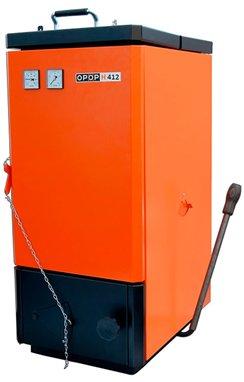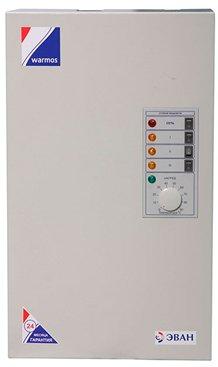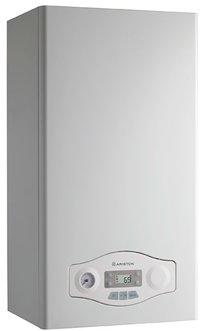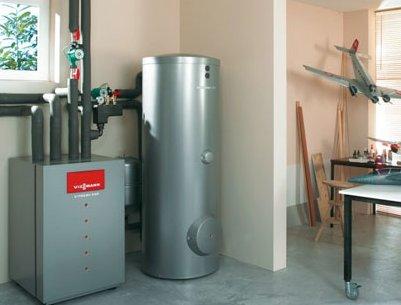To get high-quality and efficient heating of a private house, you need to know the features of the boilers and the parameters of their selection. Such devices make it possible not only to heat the room, but also to get hot water. The technique makes it possible to create your own microclimate inside the building and will work for many years. The article presents all the data on how to choose a boiler for heating a house, what requirements need to be set, what to consider.
Content
- 1 Features of single and double-circuit boilers
- 2 Types of boilers for heating a private house
- 3 Equipment power calculation rules
- 4 Parameters for choosing a boiler for heating a private house
- 5 Choosing a place for the boiler
- 6 The nuances of operating boilers
- 7 Which boiler for heating a private house to choose
Features of single and double-circuit boilers
Before choosing a boiler for heating a house, you should understand some of its characteristics and types. Special attention has to be paid to the contours of the structure. There are devices on sale for 1 or 2 circuits. In the first case, the units are suitable only for space heating by means of a heat carrier and liquid circulation through pipes. To get hot water, the owners have to buy and connect a boiler. Single-circuit models are convenient to use, but the main disadvantage is the high cost, because you still have to buy devices for supplying hot water, which take up additional space in the house.
If we talk about models for 2 circuits, then from the factory they imply not only connections to the heating system, but also water supply, which gives access to hot water all year round. This design helps to solve 2 problems at once, buying only 1 device. In addition, if there is no hot water, the coolant can be redirected for alternating operation, namely, heating the room and dispensing warm liquid from the tap.
The principle of operation of single-circuit equipment
Technique with 1 circuit is often used in cottages or expensive suburban buildings. In fact, this is an ordinary water heater, but water is supplied directly to the heating system, where the heated liquid is constantly circulated.
The system works quite simply - fuel burns in the chamber, which helps to heat the water. Using the line, a connection is made to the outlet, where the coolant enters. After that, the liquid begins to move in the heating pipes, which gives an even heating of the entire housing. At the very end of the movement of the liquid, it enters the boiler back through the inlet pipe.
Such a system can be preferred if there is no need for a hot water source. The price of the equipment can be very high, as a rule, more equipment for 2 circuits, despite the lower functionality. The installation, use of the boiler is simple, and during operation the equipment turns out to be very effective and economical.
Single-circuit models must be chosen and bought by everyone who does not want to spend a certain budget 1 time, but get highly reliable equipment for heating their homes, which does not need special maintenance or care.
The specifics of the design of the double-circuit unit
All devices where 2 circuits are provided from the factory are a full-fledged system for heating and supplying warm water from different points in the house. In addition to the main heat exchanger, there is an additional one in the design, it is used to work with water and deliver it through the water supply system. The work of the carrier is carried out using a three-way valve that helps direct the warm fluid into the heating or plumbing system.
It should be noted that the supply of the coolant is carried out only after opening the tap with hot water, at this time the heating of the house stops. This leads to the fact that it can be difficult for those who like to take a bathroom for a long time, because the temperature in the room can drop in a few hours or tens of minutes. To solve the problem, many companies immediately install a storage boiler into the system.
Among the main disadvantages of this design is constant and careful maintenance, which is caused by the overgrowth of the secondary heat exchanger with organic and other particles in the water. It is recommended to think about installing this model for those people who live in apartments or small private buildings, where there is not much space to form a separate room as a boiler room.
Types of boilers for heating a private house
All models of boilers that are presented on the modern market differ visually and in price. Work is carried out from different fuels, which provides the required microclimate. All devices are divided into types according to the type of fuel and you need to know this in order to determine how to choose a boiler for heating. Efficiency, ease of use and economy are influenced by the energy carrier used to heat the fluid throughout the system.
Solid fuel boilers

For people who, for some reason, cannot install gas boilers, and also do not want to pay a lot for light, they should opt for solid fuel installations. It is possible to determine which solid fuel boiler to choose for heating by understanding the fuel that is planned to be used in the future. All solid fuel models are divided into:
- Classic - the design includes a combustion chamber, an ash collector, a heat exchanger, and dampers with a chimney. Manufacturers make 2 more connections for connection, different control and protection options. Functioning and heating is carried out by burning wood, coal, coke, briquettes, pellets. Fuel loading is carried out personally by the user, but there are versions with automatic loading of material into the furnace, if small-piece fuel is used.
- Pyrolysis - such boilers work with coal and gas, and the last fuel is independently produced as a result of burning wood at 200 degrees or more.
- Long-term burning - boilers of this type help the wood to heat like a candle, in other words from top to bottom, which gives the time for the combustion of the entire bookmark and heating the room for 30 hours without human intervention.
Chambers in solid fuel structures can be open or closed, include heat exchangers made of different types of steel, as well as devices for 1 or 2 circuits for obtaining hot water.
It is recommended to pay attention to this technique for people who live outside the city, it is possible to inexpensively buy firewood, coal or other combustion products. This technique is perfectly combined with other boiler options, for example, you can put electric models next to it as an additional source of heat.
Pros:
- Most of this equipment is independent of electricity.
- The optimal degree of efficiency, which is in the range of 80-93%, but some devices can be 55%.
- A high level of versatility in almost any solid fuel boiler.
- You can provide the house with hot water.
- Can be easily combined with other boiler models.
- Long burning period for 1 load of wood.
- Minimum ash content.
- Simple operation.
Minuses:
- Installation is best done in a separate room, which causes certain difficulties.
- The owner of the system will have to constantly load the furnace and clean the boiler.
- There is a minimum of comfort during use.
Electric boilers

In cases where it is impossible to install a gas boiler and there is no desire to use wood, coal and other materials for heating, electric boilers should be preferred. Such a system helps to eliminate unpleasant odors that may occur during the operation of solid fuel or liquid models; there is no need to prepare material for the furnace.
Manufacturers offer a choice of 3 types of electric boilers:
- With heating element - the most popular type for a private house or apartment. The work is carried out using a heating element that can heat the water after plugging into the outlet.
- Electrode - work is carried out using alternating current, which passes in the water between the anode and cathode.
- Induction - a special electromagnetic technology is used, and the rise in temperature indicators begins immediately after passing through the tube with the coil.
Electric boilers can also provide users with hot water. For this, equipment with 1 circuit and a boiler are used, or devices for 2 circuits are immediately bought. In this case, the productivity will be sufficient, at several points the device can give from 15 liters of liquid per second. During the acquisition of equipment, it should be understood that the models can be connected under voltage with 1 phase - 220V or 3 phases - 380V.
The installation of an electric heating device can be performed in any private home, but as a result of high prices for services, it will be better to use the device for small houses and areas, although it can be installed as an additional heating part.
Pros:
- Small size and relatively easy installation.
- High efficiency, which is in the range of 93-99%.
- Suitable for fixing on the wall, regardless of the room.
- There is no need to install a chimney.
- Very high security.
- You can immediately heat and receive hot water.
- Convenient use, since it is enough to make the settings once, after which the technique works automatically without user control.
- Large assortment, many models are in an affordable price segment.
Minuses:
- Dependence on electricity.
- High price for heating, due to billing due.
- In the event of a power outage, the device will not work, and a prolonged absence in winter can cause various troubles.
Gas boilers

To figure out which gas heating boiler to choose, you should understand the features of the models as a whole, their pros and cons. Such equipment works on the basis of natural gas and is installed only where there is a possibility of connecting to the gas main.
With other devices, the equipment is very similar, but there are a large number of personal parameters that distinguish the device. At the moment, manufacturers offer convection devices. These are ordinary gas boilers operating in a conventional manner. Their efficiency is in the range of 87-92%. High performance condensing units are also provided. Steam energy is used for work, so the efficiency increases and will be in the range of 105-110%. An open or closed firebox is installed in such equipment.
The first type of furnace requires oxygen from the inside, there is an atmospheric burner, and the output of processed products is removed through a classic chimney. In a closed chamber, air is taken from outside the room, a turbocharged burner is installed, and a coaxial pipe is used to remove the smoke.
In addition, gas equipment can provide residents with hot water. To do this, you need to buy models with 1 circuit, additionally install an indirect water heater, or immediately give preference to 2-circuit types with 1 or 2 heat exchangers.
Installation is carried out in different ways. For example, if you choose models with open combustion chambers and a classic chimney, then it is better to install the installation in specialized rooms. Better to choose for a private house. The equipment is powerful, heavy and placed on the floor. Closed furnaces with a coaxial pipe are considered relatively light in weight, they are more often mounted on walls and are suitable for small buildings.
Pros:
- High efficiency, which can go up to 110%.
- Many devices are independent of electricity.
- Ambient views are completely quiet as they don't have a fan.
- It is possible to connect the device to the water supply in order to receive hot water at any time of the year.
- Large selection of models.
- Affordable cost and fuel.
- Convenient and easy to use.
Minuses:
- With a built-in pump, fan or electronics, there is a dependence on light.
- In the case of an open firebox and a conventional chimney, owners need to take care of finding a separate and isolated place.
- The turbocharged models are hands-free.
Oil-fired boilers

In cases where all the options described are not suitable for various reasons, and the building is more than 100 square meters, then liquid boilers can be used for heating. Floor standing gas heating boilers are very similar to these models in design, appearance and other parameters. The package also includes a combustion chamber, a burner, a heat exchanger, an expansion tank, a pump for circulating liquid and fuel. Control elements are displayed separately, which are made in the form of a thermometer, manometer and sensors.
Installation of liquid boilers should be carried out in a separate room; operation is performed using diesel fuel from an external tank, as well as air from the street. After the diesel engine burns out, the equipment releases all combustion residues into the chimney or coaxial pipe.
Ignition of fuel can be carried out using an electrical or mechanical method, steel or cast-iron heat exchangers are installed inside, and the boiler itself can be classic or condensing with a different number of circuits. The fuel tank is often made of stainless steel, which is insulated on top, and its installation is carried out in the ground, near the house.
The described models can hardly be called popular among users, but if it is possible to inexpensively use diesel fuel or waste oil, then the equipment will be effective and will be able to quickly warm up the premises.
Pros:
- Sufficient efficiency, which is in the range of 80-103%.
- Versatility of use, because any petroleum products that can burn can be poured inside.
- It is possible to connect the device to the water supply system.
- Automated system.
- Simple operation.
- Optimal dimensions.
- No permits or other documents required for installation.
- Service life from 20-30 years and more.
Minuses:
- For work, you will need to find a separate room, as well as a container for storing fuel.
- The room will constantly smell a little combustible.
- The total cost of the equipment, taking into account all the elements and fuel, is very high.
Combined boilers

People are not always able to use electricity, gas, wood or other fuel to heat a room. Materials may run out, gas is not supplied, and lights are turned off very often. In this case, the installation of a universal boiler will come to the rescue.
Combined models easily switch to different fuels, so there are no difficulties with building heating. There are double-circuit devices on sale to get warm water, but you can install an indirect type water heater.
Multi-fuel plants can take turns working with a heating element, coal, diesel fuel or gas, but more often dual-fuel boilers are sold. Most Popular:
- Gas and diesel.
- Solid fuels and gas or diesel.
- Electricity and solid fuels.
When switching to another fuel, it is often necessary to simply replace the burner. Such devices are structurally complex, due to which they need to be carefully operated, otherwise the cost of repairs will be very high.
Pros:
- A high degree of versatility, because any fuel can be used.
- Some devices offer automatic switching from primary to secondary fuel.
- It is not necessary to additionally install various units and elements for the operation of the boiler.
- Convenient installation in comparison with other types.
- Quite good efficiency indicators.
- Energy independence of equipment.
- It turns out to be connected to the hot water supply.
- High practicality.
Minuses:
- It is necessary to find and allocate a room for installing a boiler and storing fuel.
- High service requirements.
- A complex structure that causes costly repairs in the event of breakdowns.
Equipment power calculation rules
Considering how to choose a gas boiler for heating a private house or other models, it is important to accurately calculate the power of the equipment. It is worth noting that the desire to save a certain budget and not make a heating system project, as well as forget about carrying out heat calculations, leads to negative consequences in the future. If you carefully think over the heating of the room, entrust the calculation to specialists, then the price of the equipment will be several times cheaper than without such documentation.
It is possible to approximately determine the possible power of the equipment for heating and obtaining hot water if you use specialized standards. In addition, during the calculations, several important aspects must be taken into account:
- The number of people in the family who will constantly be in the house.
- The materials from which the walls are made, insulation, roofing and other elements of housing.
- Region and climatic features.
- The number of doors, windows.
- Number of floors and other indicators.
The most common opinion for the selection of heating equipment is 0.1 kW of boiler power per square meter. Modern materials for construction, as well as equipment in the form of boilers can reduce these characteristics, so the performance will be higher than declared.
Parameters for choosing a boiler for heating a private house
Before visiting the point of sale, you should immediately determine the model of the boiler, the type of fuel that will be used for the operation of the equipment. Each option has certain pros and cons, so the choice is always personal. Gas can be considered the most convenient, practical and, for many, economical option. But some people who live outside the city prefer wood or coal. When choosing a boiler for heating your own home, experts advise using several tips and parameters that need to be paid attention to:
- The most important aspect when choosing is power. It is recommended to make a classic calculation, for example, for a room of 10 sq.m. in which ceilings of 3 meters will be enough 1 kW with a 20 percent margin. During more accurate calculations, other features are taken into account, including insulation, materials and wall area.
- The efficiency depends on the power, and the more the manufacturer declares, the less it will need to spend on fuel, and the operation of the device will be efficient. The best in this segment will be condensing gas boilers, whose value reaches 110%. Solid fuel plants give the least efficiency.
- For people who need not only to heat the house, but also to receive hot water, it is recommended to immediately consider models for 2 circuits. Of course, you can buy a conventional boiler with 1 circuit and also purchase an indirect water heater, but this entails additional costs.
- The functioning of boilers is carried out according to different schemes. When choosing an open chamber for air intake, atmospheric burners are installed, and chimneys must be installed to remove smoke and combustion products. The equipment works quietly.Closed furnaces with turbo burners are louder, air intake and combustion products are provided with a coaxial pipe. For a private house, you can use both options, but the first will be better.
- All heat exchangers are made from different types of steel. The most expensive products can be considered cast iron products, they are not afraid of corrosion, they retain the temperature for a long time, but in the event of a sharp change in temperature conditions, they crack. Steel models are much lower in price, which are not afraid of temperature fluctuations, but during use there are risks of rust.
- When choosing a boiler, it should be understood that they can be non-volatile or dependent. The former can work even without light, when the current is turned off in the house. It is recommended to use boilers for places where there are frequent power outages. The latter can work and give maximum efficiency only with a stable power supply from the outlet
- When choosing solid fuel installations, you need to remember that every day in winter you will have to do manual loading of firewood, but pellets can be unloaded automatically, but this function is not available in every model.
- Choosing electric boilers, a person gets maximum convenience, but bills will be paid the highest. Heating elements are the most popular, since their initial cost is relatively low, and the equipment can be easily changed if desired or necessary.
- Much attention must be paid to the boiler control and monitoring unit, as well as the safety level. It is especially important to look at the protection of the structure when choosing gas equipment that may be subject to pressure drops.
No less important will be the name of the brand that produces the boiler, the cost and warranty period, as well as the possibility of service in your city or neighboring regions.
Choosing a place for the boiler
Based on the type of boiler for heating the house, their installation can be carried out on the walls, on the floor, or in any of two options. Experts advise to mount floor structures in a separate room, because the devices are very powerful, therefore large. In addition, these options are very heavy, often complemented by cast iron heat exchangers to increase the degree of reliability.
Wall-mounted models are characterized by optimal dimensions, as well as low weight. Boilers with this installation are always limited in their capacity. The disadvantage is especially noticeable for devices with 2 circuits. In this case, the performance for each circuit is noticeably felt, which is rather low.
It is recommended to choose a wall installation for areas up to 200 sq. m., and if there is a hot water connection, then its consumption should not be more than 14 liters per minute. If the needs are higher, then it is better to look closely at the outdoor views.
Many potential buyers, regardless of the size of a house or apartment, choose a floor-standing installation, because there is a high-quality heat exchanger inside, and the devices themselves are not so required for electricity and maintenance.
If we talk about specific rooms, then gas-powered devices with a capacity of up to 100 kW can be marked right on the kitchen wall. The rest of the options should be installed strictly according to cubic capacity, with a clearly created design, ventilation, and other means to increase safety.
The nuances of operating boilers
For a stable and long-term operation of any type of boiler for heating, it is important to understand several subtleties. It is worth noting that many units require electricity, in addition to solid fuel models. It is necessary for the operation of the automation of the entire boiler room, pumping equipment inside the devices. In this case, it is better to immediately buy an electric generator when choosing a boiler, especially if a house or street is often de-energized in the place of residence.
In addition, correct and safe operation can be carried out with an intelligent smoke outlet. Regardless of the type of boiler, many companies do everything to increase the degree of safety.Due to this, almost all modern models include:
- a sensor that detects the presence of fire.
- Traction control sensor.
- A system for stopping the operation of the equipment if the working pressure in the gas line decreases and is less than the permissible norm.
- A device that turns off equipment when there is no light in the house.
- Elements that help keep the device from overheating.
- A sensor that stops the operation of the boiler when the volume of the coolant decreases.
The described elements are basic, help to save not only heating equipment, but also the house from a possible fire.
The most popular homes among residents are gas boilers for heating. This is due to the affordable price of fuel, as well as the long service life and reliability of the equipment. As a result of certain peculiarities and difficulties in the regions of the Russian Federation, some have to buy other variations, because gas may not be so profitable for them.
The choice and purchase should be made based on personal preferences, as well as needs, taking into account the size of the house, the availability of fuel.
Which boiler for heating a private house to choose
If after reading the article there are questions about choosing a boiler, then experts recommend opting for the following:
- For private houses within the city, you can put any model, but the exact choice depends on the circumstances.
- Large buildings within the city require steel work and therefore it is best to choose floor-standing gas boilers with 1 circuit. If there is a need for hot water, supply it separately by installing a boiler.
- For small houses, you can put gas boilers on a wall or floor, preferably with 2 circuits and a closed chamber for the firebox. Use a cast iron heat exchanger, and if the fluid in the system is soft, then steel is suitable. If you need to get maximum comfort and financial capabilities allow you to do this, then work from electrical installations is suitable.
- For people who live in houses outside the city, the best option is a gas boiler for 2 circuits, and if there is no mainline, then a solid fuel installation will be an alternative. The type of fuel is selected individually.
If the choice falls in the direction of solid fuel plants, then it should be understood that firewood is cheaper than pellets, but they need to be loaded once every 1-2 days. The second type of fuel is more expensive, but the furnace is also loaded every 7 days.




They insulated the house last fall, and worked on the tower. They promptly insulated and sheathed the house with new clapboard.) It was warm until late autumn, then the gas boiler was connected. In winter, the parents lived in the house, they spoke warmly in the house. =)) Additionally, windows were opened for ventilation.
0